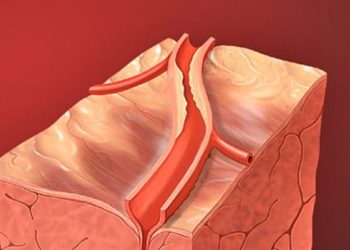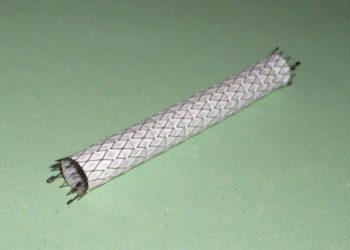Daily colchicine after myocardial infarction lowers risk of subsequent event
1. Colchicine given to patients after a myocardial infarction led to a significantly lower risk of death from cardiovascular causes, resuscitations, myocardial infarctions, stroke, and hospitalizations for angina.
2. The main adverse events from colchicine, as compared to placebo, were diarrhea, nausea, and pneumonia.
Evidence Rating Level: 1 (Excellent)
Study Rundown: The American Heart Association and the American Stroke Association guidelines recommend statins to be used in patients following ischemic stroke. Prior studies have shown a decrease in cardiovascular events when using an inflammatory modulator, but it came with the risk of increased infection rates. This randomized-controlled trial examined the effects and long-term efficacy of low-dose colchicine, an inexpensive anti-inflammatory medication, on cardiovascular outcomes. 0.5mg of daily colchicine was given to patients within 30 days after a myocardial infarction and followed for about 20 months. Overall, there was a decreased risk of cardiovascular events among the participants taking colchicine, including death from cardiovascular causes, resuscitated cardiac arrest, myocardial infarction, stroke, and hospitalization for angina leading to coronary revascularization. There was an increased rate of diarrhea, nausea, and pneumonia among the colchicine group, as compared to the placebo group. This large, longitudinal study included a majority of patients that received aspirin, another antiplatelet agent, statin, and PCI (percutaneous coronary intervention) in addition to colchicine. Further research is needed to study more patients and determine the longer-term efficacy and safety of colchicine in preventing cardiac events.
Click to read the study in NEJM
In-Depth [randomized controlled trial]: This large double-blind multicenter randomized-controlled trial was conducted across 167 centers in 12 countries from December 2015 to July 2019. 4745 patients who had had a myocardial infarction within the past 30 days, underwent any planned revascularization procedures, and treated according to national guidelines were included. Patients were excluded if they had heart, kidney, or liver failure, recent stroke, recent CABG surgery, history of cancer, and long-term use of steroids. Participants received colchicine for a median of 19.6 months with an overall 5.5% rate of cardiovascular events, as compared to 7.1% in the placebo group (hazard ratio, 0.77; 95% CI, 0.61 to 0.96; P=0.02). Overall rates of death from cardiovascular causes, resuscitated cardiac arrest, MI, stroke, and hospitalization for angina were lower among the participants receiving colchicine. The overall rate of serious adverse events was 16.4% among colchicine group and 17.2% of placebo group, with a gastrointestinal event being the most common. Among the adverse events reported, nausea, flatulence, and pneumonia were seen at higher rate among the colchicine group (P<0.05). Pneumonia was also more common in the colchine group (0.9% vs 0.4%, p<0.05). A small subgroup of patients had high-sensitivity C-reactive protein levels measured throughout this trial with a greater decrease among participants receiving colchicine (-10.1 percent points; 95% CI, -28.6 to 13.4).
Image: PD
©2019 2 Minute Medicine, Inc. All rights reserved. No works may be reproduced without expressed written consent from 2 Minute Medicine, Inc. Inquire about licensing here. No article should be construed as medical advice and is not intended as such by the authors or by 2 Minute Medicine, Inc.






